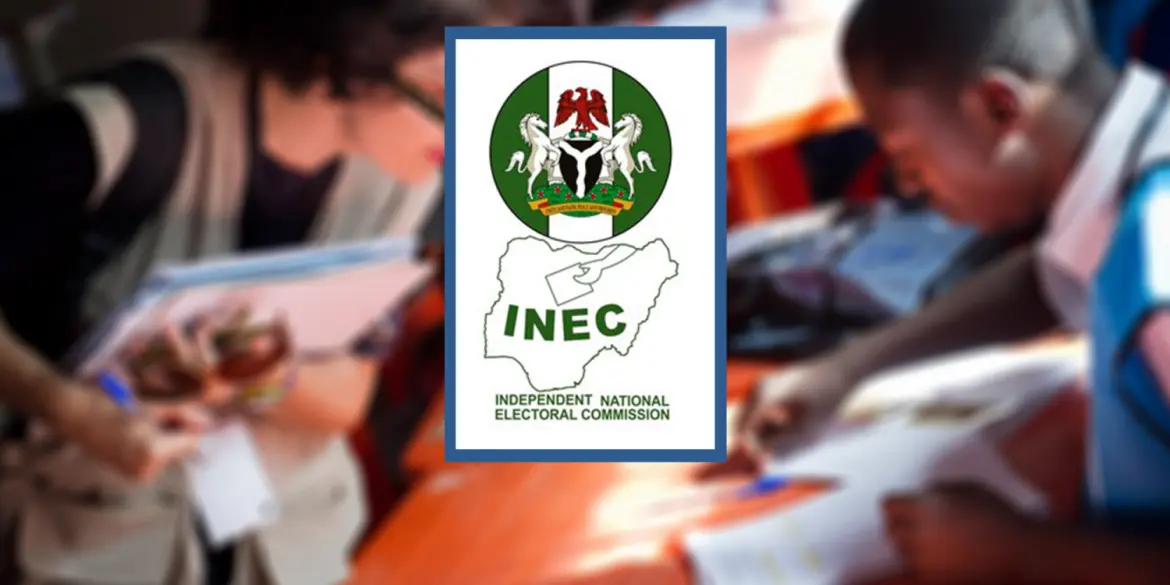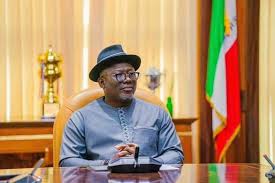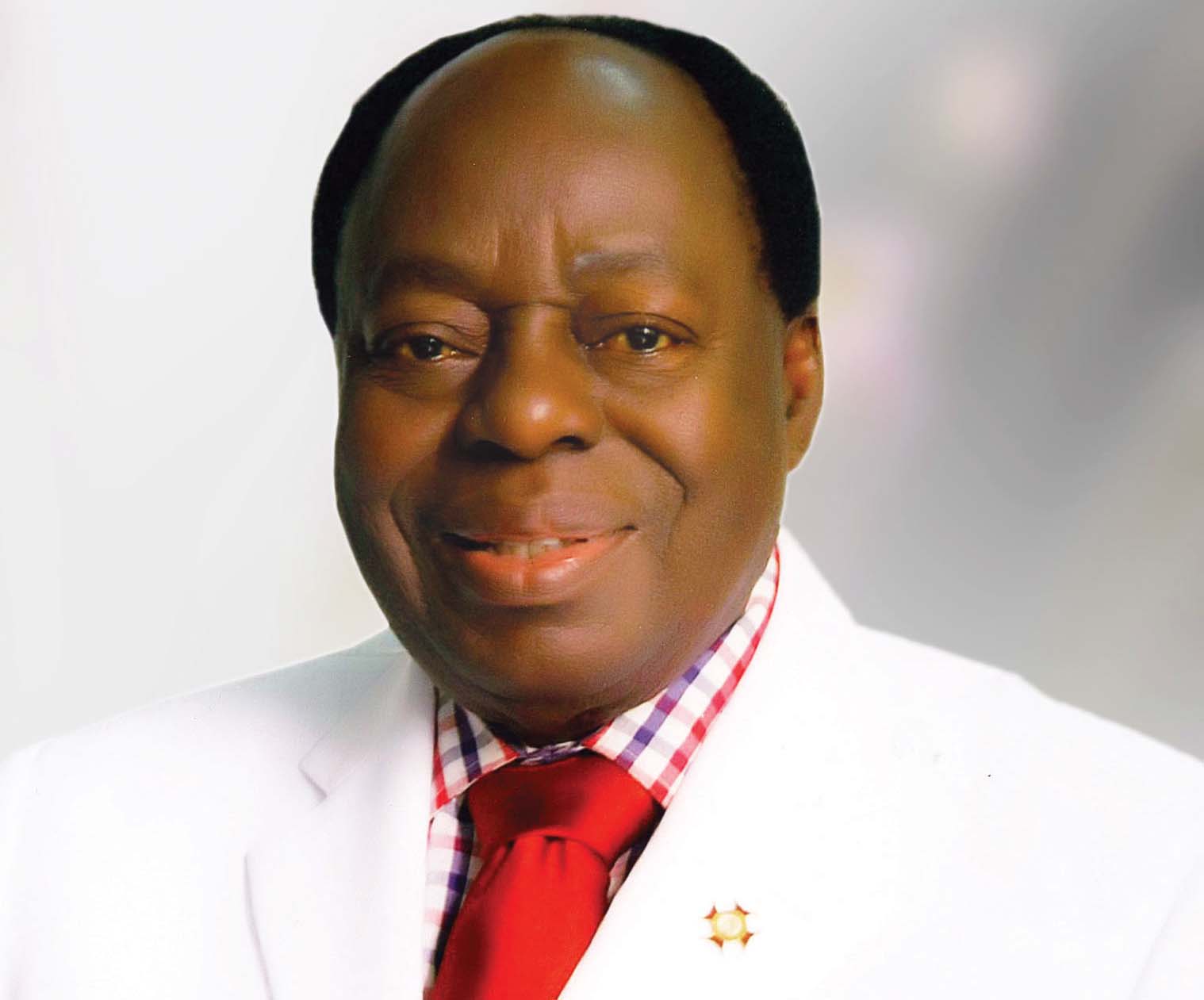Headlines
INEC Reacts to Election Guidelines Changes, Claims It Isn’t Unilateral, and Explains PDP Is First to Benefit

By Derrick Bangura
In its first official reaction to the adjustment of the general election guidelines, the Independent National Electoral Commission (INEC), on Monday, said it did not act unilaterally or out of sync in adjusting the Timetable and Schedule of Activities for the conduct of the 2023 general election by a few days.
The commission also took a swipe at the PDP, which has cancelled all its primary elections in Ebonyi State, saying, “Some of the political parties that criticised the commission despite being part of the pleas for a little adjustment are now taking advantage of and seizing the opportunity of the 6 days grace period or window they criticised to put their house in order by conducting their outstanding primaries.”
Speaking with THISDAY, the national commissioner in charge of Information and Chairman, Voter Education, Festus Okoye, said, “The Commission understands the mood of the nation and assures Nigerians that going forward, it is determined to follow through with its timelines embedded in the Timetable and Schedule of Activities for the 2023 general election.
“The Commission is focused and determined to conduct free, fair and transparent election in 2023,” Okoye added.
According to him, the commission was resolute and would not in any way tamper with the critical timelines in the Timetable and Schedule of Activities, adding: “The Commission did not act unilaterally or under any form of pressure or duress in the 6-day grace period granted to the 18 registered political parties.
“It is on record that on May 10, 2022, the Commission held a consultative meeting with the leaders of all the 18 registered Political Parties. At the meeting, the political parties requested for an adjustment of the Timetable and Schedule of Activities for the conduct of the 2023 general election.
“They requested for 60 days and the Commission turned it down. Thereafter, the political parties requested for a shift of 37 days and the commission turned it down.
“At the consultative meeting, where the parties made the request, some of them accused the Commission of endangering democracy by refusing to alter the Timetable and Schedule of Activities. They insisted that they may not have candidates in so many of the constituencies unless they are given a grace period.
“Of course, the period for the primaries had started as at the time the political parties unanimously made the request. By the Timetable and Schedule of Activities, the period for the primaries commenced on the 4th of April 2022 and to end on the 3rd of June 2022. None of the Political Parties accused the Commission of shifting the goal post at the middle of the game.
“On the 12th of May 2022, the political parties wrote to the Commission once again requesting for an adjustment of the timelines and the Commission turned down their request. None of the political parties accused IPAC of acting unilaterally or not representing them.
“On the 26th of May 2022, the political parties under the auspices of the Inter Party Advisory Council, wrote to the Commission and requested for a meeting to hold on the 27th day of May 2022. IPAC invited their members to the meeting. 15 of the registered Political Parties attended the meeting.
“At the meeting of the 27th May 2022, they informed the Commission that they used their own network to invite all the registered political parties. They once again requested for an adjustment of the timelines on grounds that they have problems.
“They pleaded and canvassed that the Electoral Act 2022 was being operated for the first time and that most of them have made mistakes in the conduct of their primaries. They pleaded with the Commission to show some magnanimity to enable them have crisis-free primaries and avoid avoidable litigation,” the INEC national commissioner stated.
He explained that instead of 37 to 60 days, the political parties pleaded for only six days between the 3rd June and the commencement of the upload of nomination forms on our web portal on 10th June 2022.
“It is, therefore, not true and cannot by any stretch of imagination be insinuated that the commission bowed to pressure. The commission granted a request and headed the plea by all the political parties in Nigeria to use the six days already provided in the Timetable of which all the parties were aware of.
“A passionate plea by political parties for what they called a little adjustment cannot by any stretch of imagination be termed bowing to pressure. Furthermore, the six days grace period extended to the political parties will not in any way affect any of the timelines in the Timetable and Schedule of Activities of the Commission.
“There is no longer any window to play with or any little adjustment to be made. Political parties may find out to their disappointment that they may have no candidates in constituencies, where they are unable to conduct or conclude their congresses and democratic primaries as provided by the Electoral Act 2020. We remind all Political Parties of what happened in some States (Rivers and Zamfara) in 2019,” Okoye said.
Headlines
Noble Ladies Champion Women’s Financial Independence at Grand Inauguration in Abuja

Women from diverse backgrounds across Nigeria and beyond gathered at the Art and Culture Auditorium, Abuja, for the inauguration and convention of the Noble Ladies Association. The event, led by the association’s Founder and “visionary and polished Queen Mother,” Mrs. Margaret Chigozie Mkpuma, was a colourful display of feminine elegance, empowerment, and ambition.
The highly anticipated gathering, attended by over 700 members and counting, reflected the association’s mission to help women realise their potential while shifting mindsets away from dependency and over-glamorization of the ‘white collar job.’ According to the group, progress can be better achieved through innovation and creativity. “When a woman is able to earn and blossom on her own she has no reason to look at herself as a second fiddle,” the association stated.
One of the association’s standout initiatives is its women-only investment platform, which currently offers a minimum entry of ₦100,000 with a return of ₦130,000 over 30 days—an interest rate of 30 percent. Some members invest as much as ₦1 million, enjoying the same return rate. Mrs. Mkpuma explained that the scheme focuses on women because “women bear the greater brunt of poverty” and the platform seeks “to offer equity in the absence of economic equality.”
Education is also central to the Noble Ladies’ mission, regardless of age. Their mantra, “start again from where you stopped,” encourages women to return to school or upgrade their skills at any stage in life. The association believes that financial stability is vital in protecting women from cultural practices that dispossess widows of their late husbands’ assets, while also enabling them to raise morally and socially grounded families.
Founded on the vision of enhancing women’s skills and achieving financial stability, the association rests on a value system that discourages pity and promotes purpose. “You have a purpose and you build on that purpose to achieve great potentials and emancipation,” Mrs. Mkpuma said.
A criminologist by training and entrepreneur by practice, she cautions against idleness while waiting for formal employment. “There are billions in the informal and non-formal sectors waiting to be made,” she said, rejecting the “new normal of begging” and urging people to “be more introspective to find their purpose in life and hold on to it.”
Mrs. Mkpuma’s management style keeps members actively engaged, focusing on vocational skills and training to prepare them for competitive markets. She is exploring “innovative integration of uncommon technologies” and is already in talks with international franchises to invest in Nigeria, with Noble Ladies as first beneficiaries.
The association’s core values include mutual respect, innovation, forward-thinking, equal opportunity, and financial emancipation. With plans underway to establish a secretariat in the heart of Abuja, the group aims to expand its impact.
The event drew high-profile guests, including former Inspector General of Police, Mike Okiro, and a host of VIPs, marking a significant milestone in the association’s drive for women’s empowerment.
Headlines
NEPZA, FCT agree to create world-class FTZ environment

The Nigeria Export Processing Zones Authority (NEPZA) has stepped in to resolve the dispute between the Federal Capital Territory Administration and the Abuja Technology Village (ATV), a licensed Free Trade Zone, over the potential revocation of the zone’s land title.
Dr. Olufemi Ogunyemi, the Managing Director of NEPZA, urged ATV operators and investors to withdraw the lawsuit filed against the FCT administration immediately to facilitate a roundtable negotiation.
Dr. Ogunyemi delivered the charge during a courtesy visit to the Minister of the Federal Capital Territory, Barrister Nyesom Wike, on Thursday in Abuja.
You will recall that the ATV operators responded to the revocation notice issued by the FCT administration with a lawsuit.
Dr. Ogunyemi stated that the continued support for the growth of the Free Trade Zones Scheme would benefit the nation’s economy and the FCT’s development, emphasizing that the FCT administration recognized the scheme’s potential to accelerate industrialisation.
Dr. Ogunyemi, also the Chief Executive Officer of NEPZA, expressed his delight at the steps taken by the FCT minister to expand the economic frontier of the FCT through the proposed Abuja City Walk (ACW) project.
Dr. Ogunyemi further explained that the Authority was preparing to assess all the 63 licensed Free Trade Zones across the country with the view to vetting their functionality and contributions to the nation’s Foreign Direct Investment and export drives.
“I have come to discuss with His Excellency, the Minister of the Federal Capital Territory on the importance of supporting the ATV to succeed while also promoting the development of the Abuja City Walk project. We must work together to achieve this for the good of our nation,” he said.
On his part, the FCT Minister reiterated his unflinching determination to work towards President Bola Ahmed Tinubu’s Renewed Hope Agenda by bringing FDI to the FCT.
“We must fulfil Mr. President’s promises regarding industrialization, trade, and investment. In this context, the FCT will collaborate with NEPZA to review the future of ATV, a zone that was sponsored and supported by the FCT administration,” Wike said.
Barrister Wike also said that efforts were underway to fast-track the industrialisation process of the territory with the construction of the Abuja City Walk.
The minister further said the Abuja City Walk project was planned to cover over 200 hectares in the Abuja Technology Village corridor along Airport Road.
According to him, the business ecosystem aimed to create a lively, mixed-use urban center with residential, commercial, retail, hospitality, medical, and institutional facilities.
He added that the ACW would turn out to be a high-definition and world-class project that would give this administration’s Renewed Hope Agenda true meaning in the North-Central Region of the country.
Barrister Wike also indicated his continued pursuit of land and property owners who failed to fulfil their obligations to the FCT in his determination to develop the territory.
Headlines
Benue IDPs block highway, demand return to ancestral homes

Vehicular movement along the Yelwata axis of the Benue–Nasarawa highway was brought to a standstill on Wednesday as Internally Displaced Persons, IDPs, staged a protest, demanding immediate return to their ancestral homes.
The protesters, believed to be victims of persistent attacks by suspected herdsmen, blocked both lanes of the busy highway for several hours, chanting “We want to go back home”.
The protest caused disruption, leaving hundreds of motorists and passengers stranded.
Eyewitnesses said the displaced persons, many of whom have spent years in overcrowded IDP camps, are expressing deep frustration over the government’s delay in restoring security to their communities.
“We have suffered enough. We want to return to our homes and farms,” one of the protesters told reporters at the scene.
Security personnel were reportedly deployed to monitor the situation and prevent any escalation, though tensions remained high as of press time.
Efforts to reach the Benue State Emergency Management Agency, SEMA, and other relevant authorities for comment were unsuccessful.
-

 Headlines4 years ago
Headlines4 years agoFacebook, Instagram Temporarily Allow Posts on Ukraine War Calling for Violence Against Invading Russians or Putin’s Death
-

 Headlines4 years ago
Headlines4 years agoNigeria, Other West African Countries Facing Worst Food Crisis in 10 Years, Aid Groups Say
-

 Foreign3 years ago
Foreign3 years agoNew York Consulate installs machines for 10-year passport
-

 News1 year ago
News1 year agoZero Trust Architecture in a Remote World: Securing the New Normal
-

 Entertainment3 years ago
Entertainment3 years agoPhyna emerges winner of Big Brother Naija Season 7
-

 Headlines1 year ago
Headlines1 year agoNigeria Customs modernisation project to check extortion of traders
-

 Economy2 years ago
Economy2 years agoWe generated N30.2 bn revenue in three months – Kano NCS Comptroller
-

 Entertainment2 years ago
Entertainment2 years agoMovie download platform, Netnaija, announces closure














